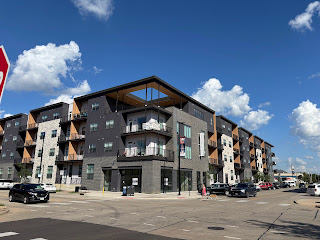 |
| Jane votes, fall 2020 (Photo by Jane Nesmith) |
For this nation to remain true to its principles, we cannot allow any
American's vote to be denied, diluted or defiled. The right to vote is
the crown jewel of American liberties, and we will not see its luster
diminished.--RONALD REAGAN, November 7, 1981
Amid awful suffering and deteriorating conditions, Texas Republicans decided to fight a culture war. In doing so, they are emblematic of the national party, which has abandoned even the pretense of governance in favor of the celebration of endless grievance.--JAMELLE BOUIE, February 19, 2021
Hold our beer, Texas! We have grievances, too!
Iowa's legislature is in session, which means the usual silliness is being debated and passed while our rural areas depopulate, we have one of the highest rates of COVID deaths in the country, and individuals and businesses struggle with economic recovery. Among the bills making it through the first "funnel"--Iowa has a part-time legislature with a three-month session, so bills must meet certain deadlines to remain under consideration--are prohibitions against traffic cameras, sanctions on social media companies that "censor" conservatives, scholarships to private K-12 schools, allowing the carrying of guns without a permit (unless you're riding an e-scooter), adding gun rights to the state constitution, a constitutional amendment declaring no right to abortion, ending faculty tenure at state universities, and cutting off funds to cities that "defund" their police departments.
The most recent piece of legislation produced by this august body aims at protecting the sensitive feelings of white men during discussions of racism and sexism (Sostaric 2021b). It specifically bars school curricula or government agency diversity training that "teach, advocate, act upon, or promote divisive concepts." Among concepts declared to be divisive is "that the U.S. or State of Iowa are fundamentally or systemically racist or sexist." Systemic racism is a serious issue--see Alston 2020, Koh 2017, and numerous other thoughtful takes--which the Iowa legislature is taking on in the silliest way possible.
Three bills that might have a positive economic impact are tax relief for individuals and businesses that have received COVID assistance; a substantial appropriation for broadband expansion; and requiring more ethanol to be sold at service stations. The rest is pure candy for those who like Iowa the way it was, whatever that was. House Minority Leader Todd Pritchard noted, "the Governor and majority party's agenda so far this session has been too focused on divisive bills that will make Iowa's recovery even more difficult.... With Iowa's workforce shortage and aging population, anytime Iowa lawmakers send messages that make Iowa look unwelcoming to others is bad for business and Iowa's future." Some even dumber stuff didn't make it through the funnel, but we can hope for next year!
However, as I said, this is pretty much what we've come to expect from our legislature of late: sundry slings and arrows at anyone who doesn't look or act like 1950s Iowa. But, this year...
This year, we're adding making it harder to vote. Governor Kim Reynolds signed a bill March 8 that moves up the deadline for arrival of absentee ballots regardless of when they were mailed, moves back the availability of absentee ballots and early in-person voting to half the time it was before 2017, outlaws mass mailing of absentee ballot request forms (an expedient used during the 2020 pandemic that might not have been repeated anyway), allows each county to have exactly one absentee ballot drop box, requires only the voter to drop off the absentee ballot, and makes disobedience by county officials a criminal offense (Sostaric 2021a). Provisions prohibiting mailing of absentee ballot applications, as well as further shortening the early-voting period were removed on the House floor. The bill was opposed by the Iowa State Association of County Auditors.
This direction is wrong on so many levels: It is part of a concerted effort by Republican legislators across America to make voting more difficult ("State Voting Bills Tracker 2021"). It is by any objective standard an overreaction to concerns about election security, it legitimizes former President Donald J. Trump's five years of baseless complaints that his opponents were cheating, and it disproportionately affects some social groups. Poor and working-class people, racial minorities, people who live in urban areas, and single parents are more likely to find this a hardship. That is what should alarm advocates of community. A common life requires that all be heard, that everyone no matter how humble have the opportunity to be part of the collective conversation. The right to participate is therefore fundamental. This law, passed by one party that represents one demographic (albeit a traditionally dominant one), strikes at the very heart of that.
The legislative majority annually speaks volumes about who counts and who doesn't in Iowa. This year, they've gone farther, to restrict who can be heard.
SEE ALSO: Erin Murphy, "New Iowa Law Limits Early and Absentee Voting," Cedar Rapids Gazette, 9 March 2021, 1A, 9A
 |
| Iowa statehouse (Source: Wikimedia commons) |












